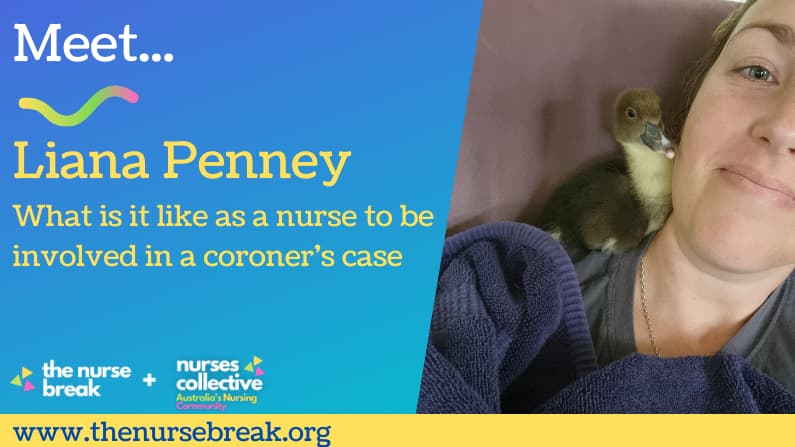Table of Contents
Liana is a Rural & Remote Nurse who has previously written an amazing article for us. Guide to precepting new grads.
Do you have a story or something you want to share and write for the website? Contact us
*Disclaimer: this is from my own experience in QLD and NSW. Others may have differing experiences
Coroner’s Cases
Coroner’s cases are something we all quietly hope we don’t encounter, but unfortunately, that isn’t always going to happen. If you’ve been trained anything like I have, you’ve been taught to document like you’re going to court.
While this isn’t the case with every coroner’s, it’s always a possibility. If you take anything from this, it’s making sure you have solid documentation.
How does it all work?
You’ve got your patient you’ve been working on. Things don’t work out and they pass. In remote areas depending on your state, we as the nurses fill the life extinct form, not the death certificate. The MO in your clinic/video will declare if this is to be a coroner’s case.
How do they decide that? If there is any question in the cause or manner of death.
Manner- natural, accident, homicide, suicide, undetermined.
Cause- the physiological reason behind the death I.e RHD, heart disease, stroke.
What NOT to do
Do not remove anything from the body of the deceased. Don’t remove the IV lines, the airway adjuncts you’ve used, nothing. Leave all lines and interventions in place. Usually with a death we make the patient look as acceptable as we can for the family, unfortunately this same care can’t be afforded to a coroner’s case. We can cover them with a sheet up to cover as much as possible but this is just the nature of a coroner’s.
If you have police in your community, chances are they are already aware of what’s happening. Once the patient is ready for the morgue the police will come to take care of their side of things. They will put a wristband on and take a picture of it next to the patients face as well as on its own.
They have their own tag for the body bag, once the bag is closed it cannot, I repeat cannot be opened by anyone but police. The paperwork if you do this is not worth it. As the bag is being closed, if appropriate, include family and double check there is nothing they want to leave with the patient or take before the bag is sealed. For example, I recently had an elder that passed away out in the bush. The police allowed his grand kids to take his fishing hat which was really nice for them.
The body will not be retrieved until the coroner is notified of the case and decides to continue with the case as a coroner’s, or release the body and dismiss it.
I have to be honest, I have been downright flummoxed by the decision of coroner’s at times, for who gets a full coroner’s and who doesn’t. At times it is down to who the coroner is.
If they decide its no longer a coroner’s, the police will come to remove their tags and wristband and the body is released to family to continue with funeral preparations. Though they will declare a cause of death by going through patient notes and the notes of the resus. It can take a few days for them to make this decision which can be stressful for families and loved ones.
If it is an accepted case the body will be privately retrieved and taken to the coroner to continue the investigation.
It can be weeks/months before you will hear the outcome of a coroner’s case, if at all in my case as an agency nurse. After the body has been put into the morgue and notes sent off the the Drs that’s where your role ends.
Coroner’s court is a whole different kettle of fish. For example, I was involved with a death in police custody recently. As a result I will need to be present in the coroner’s court which can take place up to 2 years post-death of the patient.
Take away points for coroner’s inquiries.
- Document like you are going to court
- Don’t remove anything from the patients body (IV lines, airways etc)
- Never open a sealed body bag of a coroner’s unless it’s been declared a non coroner’s case and police are present
- If you’re ever involved in an inquest the first thing to do is contact your union for advice and solicitor representation.
- Never give a statement for a coroner’s inquest without speaking to the union solicitor.
- Also, I’d recommend speaking to a third party about this as it’s pretty stressful. CRANA bush support line is great, or your union may have a wellbeing service. Look after yourself.
*Disclaimer: this is from my own experience in QLD and NSW. Others may have differing experiences





